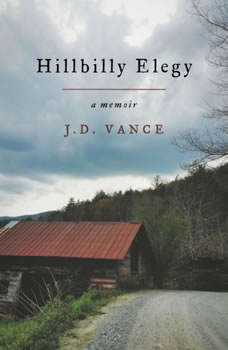
As the two coasts call the area where Vance grew up, the “fly over” part of the country, those who have never left their area on each coast can never really understand the personal struggle of someone like J D Vance because they have not had the benefit of living in a quietly poor community, where jobs may be scarce so that a Dad might have to travel to find a job, leaving his family to handle their many struggles. The inner city struggles are much different…….more violence, drug dependency, although the “fly over country” has certainly developed its share of the drug problem. The main struggle for areas like Appalachia in Ohio is their struggle to have their problems and concerns heard by those in government. Vance’s description of his childhood and the sting of being called “redneck”, and yet the desire to lash out at anyone who utters this as an insult, is a partial explanation of why someone like Donald Trump was elected. The Appalachian people are sick of hearing empty promises from their leaders, so when a non-politician gives these people hope that actual economic help may be actually given, they showed as in Vance’s book, how conservatism gives more opportunities for advancement, not just more liberal band-aids.
Vance focuses mostly on his own personal story to try to convey that ordinary “simple” social welfare solutions are not enough. It seems that those solutions are not only inadequate for the people of Vance’s Ohio Appalachia, but for all other economically repressed areas. Vance understands this, and accuses most political leaders of over simplifying the problems, therefore, they do not solve the complicated problems. Vance attempts to give a native Appalachians view of their life and culture. “Hillbilly Elegy” is a story that demonstrates the full measure of the brokenness that wracks Appalachia, but it is also a story that exemplifies the depths of familial love and opportunity.” Perhaps through someone like Vance, bridges can be built between the perceived different cultural barriers.
Get your digital audio copy today!!!
